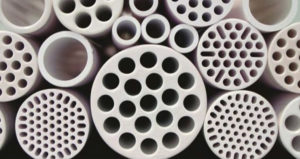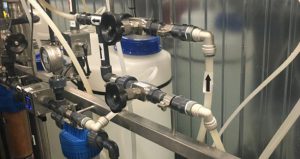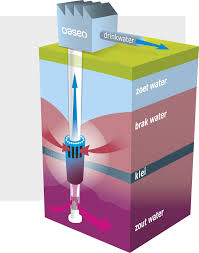Paris: Water sector against reverse osmosis plans

-
 Fergal MacErlean
Fergal MacErlean
Share article:
Plans by French supplier SEDIF to supply its four million Parisian users in the Île-de-France with low pressure reverse osmosis treated water are facing a massive backlash. Almost all of the other water sector actors oppose the proposal by the largest public water service in France, because of downstream discharges of hyperconcentrated volumes of pollutants.
Reverse osmosis (RO) technology has been practiced by water suppliers in other European countries, such as Sweden, for many years though typically to desalinate seawater at much higher pressures. New water reuse rules in place in the EU are expected to stimulate desalination use. The revised Urban Wastewater Treatment Directive (UWWTD) will focus on extra treatment in big cities, because nearly half (46%) of unregulated wastewater pollution including chemical micropollutants, microplastics and some bacteria and viruses is coming from cities with more than 100,000 inhabitants.
Reverse Osmosis
In RO, pressure is applied to a concentrated solution reversing the natural direction of flow, forcing water across a membrane from the concentrated solution into the more dilute solution. An advantage of the process is that it removes nitrates and micropollutants, such as PFASs, to produce a very pure water. However, as it lacks mineral salts it must be mixed with conventionally-produced water for it to be drinkable. The process also uses more electricity than the conventional ones and up to 15% more water. In Paris the opposing suppliers argue that the extracted pollutants are washed downstream to their operations.
Environmental authorisation
In 2020 SEDIF awarded the Stereau-consortium (Saur Gruop, Setec, Gagneraud and HB architects) with a contract to run an industry first pilot project at its Arvigny plant using low-pressure reverse osmosis. But, the water company abandoned this experiment after it failed to achieve environmental authorisation. The latest € 860 million project to provide the three plants at Méry-sur-Oise, Choisy-le-Roi, and Neuilly-sur-Marne with RO technology was relaunched by SEDIF President André Santini in April. Méry is expected to come onstream in 2025, followed by the others in 2030. SEDIF forecasts the user will pay an extra monthly € 4 cost.
Chlorine-free, healthy drinking water
Nanofiltration has been in use at the Méry-sur-Oise plant since 1999 where the membranes have pores that allow enough magnesium and calcium to permeate into the drinking water. SEDIF, to avoid having to remineralize the water after RO, intends to mix both RO water and that from nanofiltration. In a press release SEDIF said: “The quality of this water will also allow the distribution of water without chlorine – a wish constantly expressed by our users and already practiced in several communities in France (Grenoble, Mulhouse) and in Northern Europe (Amsterdam, Odense). Another key reason that SEDIF is embracing RO is ‘to eliminate a maximum of micropollutants, including forever chemicals (PFASs), drug residues and endocrine disruptors whose impact on health is not trivial’.
Transfer of pollution
Dan Lert, president of Eau de Paris, one of the four main water suppliers in the region, along with SEDIF, Sénéo and Aquavesc, told 20 minutes about the ecological risks of the project. “The transfer of pollution to other water stakeholders is not taken into account. The concentrates (all the waste from the treatment) will be discharged into the course of the rivers in hyperconcentrated volumes. It will be up to the regions downstream to treat them at the risk of further polluting the resources of these regions.” SEDIF said it ‘regretted part of the pollutants will return to their original environment. But SEDIF cannot financially take charge of cleaning the rivers. These releases (2%) will dilute very quickly’.

















